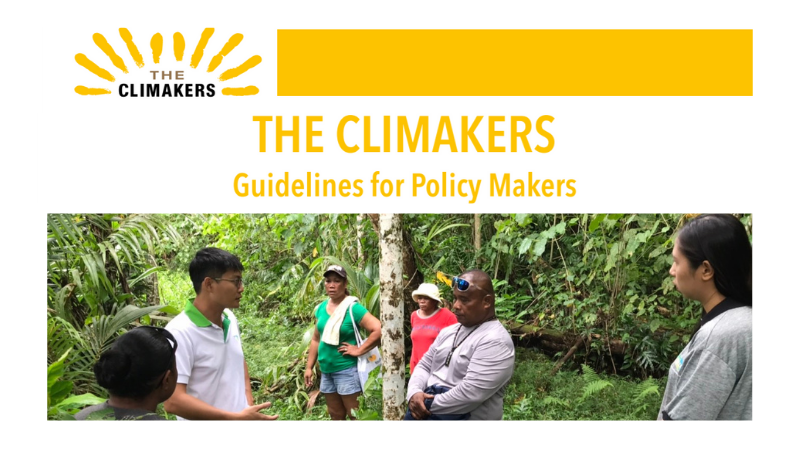Rome, Italy, November 12, 2021 – Last week, at the UN Climate Change Conference (COP 26) in Glasgow, THE CLIMAKERS officially announced the launch of the “Guidelines for Policy Makers”.
Elaborated by THE CLIMAKERS scientific partner CGIAR Research Program on Climate Change, Agriculture, and Food Security (CCAFS), and validated by the farmers in THE CLIMAKERS Alliance, these guidelines are conceived and designed as an “NDCs Toolkit” for policymakers on how to successfully integrate agriculture into the national fulfilment of the Paris Agreement, based on the best practices that farmers worldwide are already implementing to mitigate and adapt to climate change.
The guidelines explore three interrelated questions and outline some critical topics and action areas to help inform the national and global decision-making process.
The first focuses on analysing the context and linkage between agriculture and climate change, revealing insights into potential actions for achieving Nationally Determined Contributions (NDCs) and National Adaptation Plans (NAPs) goals.
The second question tackles the necessity to integrate a holistic approach in decision-making processes to lead to a better and deeper understanding of local bottlenecks and barriers to adopting adaptation and mitigation actions.
Finally, the last one aims to ensure that the decisions made will be sustainable over the long run.
Here are some highlights:
- Despite more than 80% of Parties to UNFCCC incorporating the agricultural sector in their NDCs or NAPs, greenhouse gases emissions (GHG) reductions and increases in adaptive capacity opportunities from the food systems remain largely untapped due to a lack of national integrative and strategic planning hand in hand with farmer communities and local stakeholders.
- Agriculture is one of the sectors with the most significant potential to materialise intertwined climate change mitigation and adaptation actions. Therefore, systemic and long-term approaches that integrate farmers’ perspectives into the co-design of policies at multiple scales are crucial for more sustainable, inclusive, healthy, and climate-resilient food system approaches.
- The purpose of these guidelines is to contribute to building a common ground between the main adaptation and mitigation policies at the national level and the potential leverage points for unlocking the most common bottlenecks and barriers in the face of climate-related impacts on agroecosystems and farmers’ livelihoods.
These guidelines prove once again that farmers own an essential part of the solution to climate emergencies.
With COP 26 just behind us, we know that a lot has to be done to put agriculture and food systems at the heart of the debates on climate change, and we must be prepared to make this happen at COP 27.


